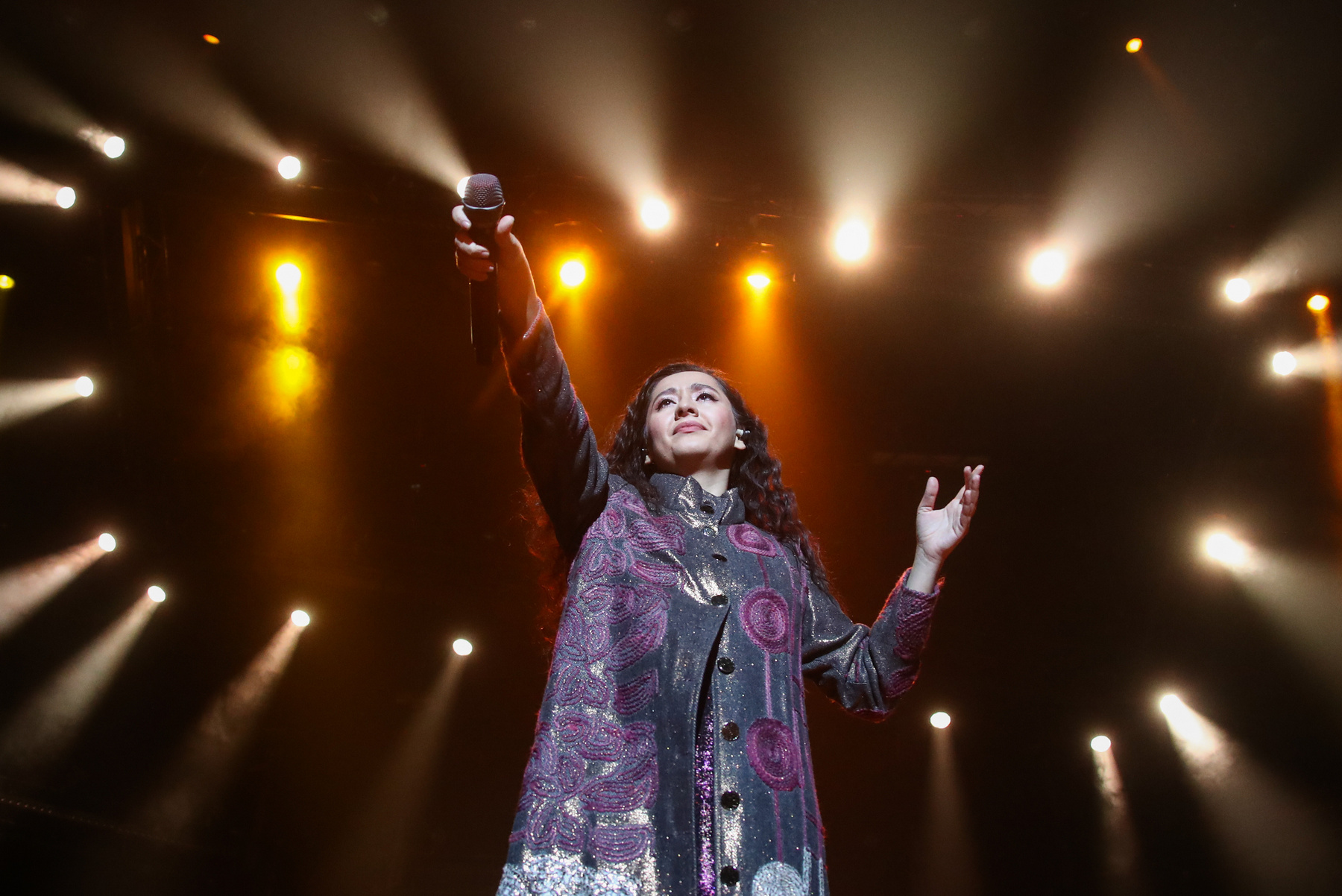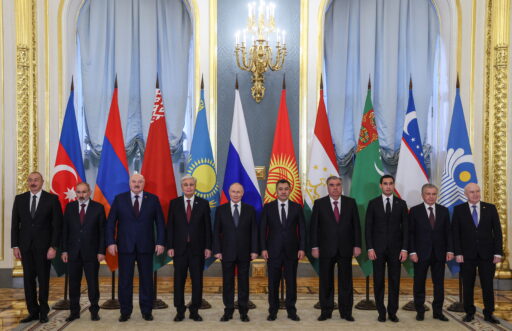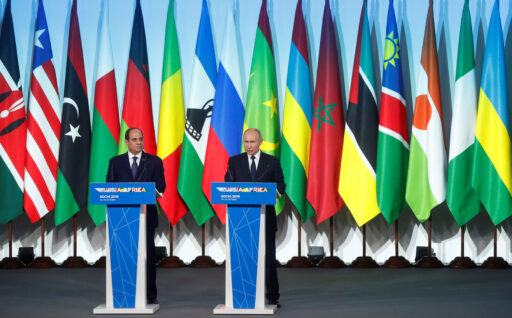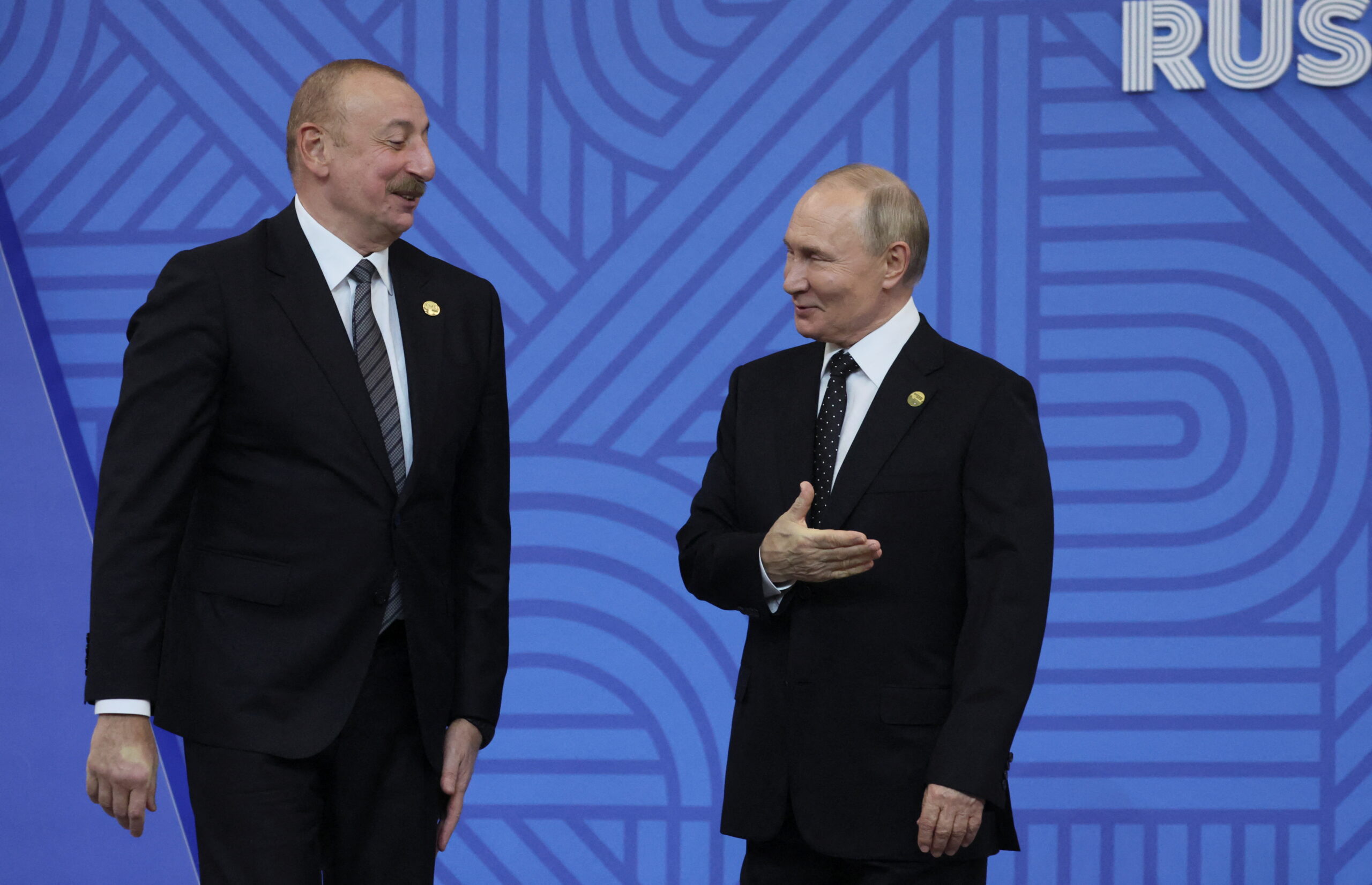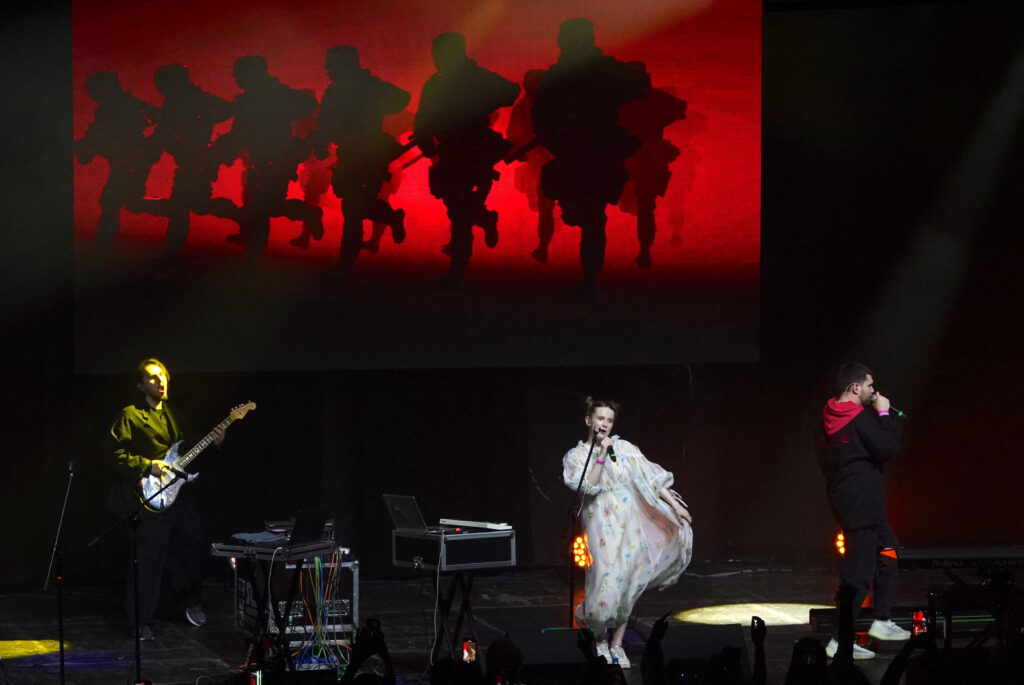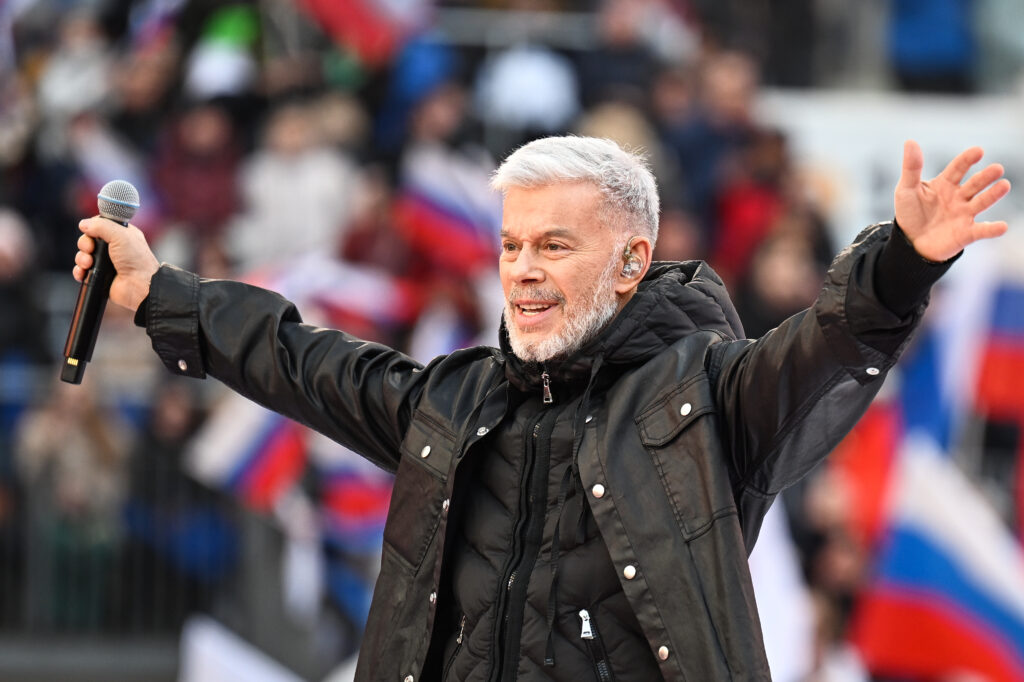Anti-immigrant views are not news in contemporary Russia. Attitudes to people coming originally from Central Asia, for instance, leave much to be desired. What has often been left to the side is discussing the designation of particular racial identities to ethnic minorities, who are regularly viewed, perceived, and conceptualized through the lens of Whiteness. The latest national Eurovision competition in Russia, however, has put this in the spotlight. Since Manizha, the Russian national winner to represent Eurovision on 18−21 May 2021, was selected on 8 March, some Russian official and unofficial media have been reacting with an overwhelming wave of criticism.
At the time of Eurovision, Manizha Sangin had a following in Russia, but she was not as popular as Little Big, the winner of last year’s Russian Eurovision contest. Manizha originally comes from Tajikistan, but she came to Russia when she was 2,5 years old, owing to the Tajik Civil War. Since then, Manizha has become a Russian citizen (Rossiyanka) and considers herself Russian (russkaya), stating she even «feels in Russian». While there were hints at her being in Eurovision last year, it was only this year she competed and won the nomination. Since then, her lyrics and person have come under attack.
First, there has been clear criticism from more official channels, such as an ongoing investigation into the song lyrics in attempt to ban Manizha from competing in Eurovision. It was brought to the Investigative Committee by Veteranskie Vesti, a newspaper and organization, on the basis of insulting Russian women through the prism of nationality. According to the report, «The fact is that, ethnically, M. D. Sangin („Manizha“) has no relationship to Russians at all. She speaks Russian and lived in Russia for some time, but this by itself in no way makes her Russian, and it does not give her the grounds for her national-cultural identification as a Russian woman…» Later the speaker of the Federation Council, Valentina Matvienko, criticized the artist’s performance by stating that the song «is nonsense» and asked how it made it to the competition.
Much of the criticism is a mix between anger over her feminist message and ethnic background, and both deserve to be analyzed. However, the focus here is on the criticism she receives owing to her Tajik origin, since specifically, we are looking at the racial dimension of the reaction from Russia. Normally, this discourse is understood as a facet of xenophobia or Russian nationalism. With the dissolution of the USSR, various ethnic and national identities surfaced and evolved, and in contemporary Russia, they now occupy unequal places in a symbolic ethnic hierarchy, with «Slavs» (or Russian, Belarussians, Ukrainians) being ranked higher than people coming from Central Asia or the Caucasus region. According to this, although Manizha speaks Russian and has a Russian passport, the most this can allow her to be is Russian in a civic sense (Rossiyanka) but not in an ethnic sense (russkaya).
Questions of superiority
When it comes to different ethnic groups, there is a hidden and complex question of superiority and inferiority in Russian society that is often not properly addressed. In recent years, Russian pop culture has featured many artists coming from ethnic federations and producing songs in both their native language and Russian or English. Perhaps, the most famous example is Tatarka, who sings in both Tatar and English, and ΖLΟΙ ΜΔΜΒΕΤ performing in Yakut language. In both cases, the artists explicitly and often ironically played with ethnic categories and stereotypes. Though they also never played with a category of «Russianness» and pretended to be «Russians.» Instead, the identities they chose to present coincided with what was «expected». These singers also have not faced the same hostility as Manizha. While they have never been selected to represent Russia, the harsher treatment of Manizha shows that we need to also admit there is racism here. Underneath this discussion, there is an unspoken understanding of a hierarchy based on ethnicity — one where Russian ethnicity is on top.
But what exactly was her song about? Why did it inspire such a reaction? On the surface, it is easy to see that Manizha’s song «Russian Woman» engages with both gender and ethnicity. Certainly, some of the backlash is from her feminist message. Yet, it seems there is something beyond gender that has angered some. During the song, Manizha switches between narrative voices. Sometimes she is part of the story, but more often than not, Manizha is not using a first-person narrative. Moreover, Manizha seemingly gives instructions, specifically to the «Russian woman». She should not be afraid and know she is «strong enough,» which can imply that the Russian woman already does not know this. The narrative framing of the song, therefore, is where we can begin to see a deeper issue. Manizha more often puts herself outside and above the advice and imperatives she is giving to Russian women. Sometimes when she does include herself in the narrative, she shows that she has already risen above these challenges — such as with «but a broken family/ does not break me». How the song is framed shows us then from where some of this antagonism comes. One way it can be interpreted is that Manizha, rather than showing support and a sense of comradery with other Russian women, is actually putting herself in a superior position.
Understandably then, Manizha’s performance also provoked social media discussions and led to a series of articles in all major Russian media outlets. These all highlighted the debates surrounding the song. However, while more liberal outlets emphasized how Manizha provoked Russian xenophobic rhetoric and made the existing categories of Whiteness and Others more visible by comparing these adverse reactions with fascism, pro-state media primarily focused on how the song led to the discussion of its incompatability with «Russian values».
Even beyond that, Manizha’s song provoked an unusually lively debate in unofficial social media. People actively commented not only the quality of a song itself but also on the performer’s identity. Looking at the most common discursive practices in the comments section cannot speak to what extent these ideas are prevalent «in the broader population». However, this exclusionary rhetoric shows that at least some Russian-speaking users apply this in their rhetoric and normalize it on an everyday basis. In a month after its release, Manizha’s video on the official Eurovision YouTube channel received 246 likes and 156k dislikes, with 8,2 million views. In comparison, the other second most popular official song from the Eurovision competition this year came from Serbia. While getting almost the same number of views, 7,5 million, it received 112k likes and only 16k dislikes. But what made users so angry?
Most of the people who were writing negative comments (excluding the question of bots or trolling agencies) used the pretext of the song being «bad» and too «progressive» to justify their discriminatory attitudes. According to them, Manizha wrote it to «please» the European audience but not because she believes in the song’s message. At the same time, Manizha, owing to her Tajik origin, is deprived of any agency, as it was not her who made this possible but rather the Russian government. The government, instead of guarding «Russianness,» allowed a cultural enemy to represent the country on an international arena. By constantly rejecting the idea that their views might be labelled as «racist» or «xenophobic», users imply that it is not them, but actually Manizha, who is Russophobic and xenophobic since her talking about facing discrimination in Russia puts «Russians» in a bad light.
What made users particularly angry was this facet of the song, where it seemed as though Manizha, a Central Asian woman, dared not only to take a superior position and distance herself from the «Russians», but to advise them on how to behave, which does not fit into prevailing and commonly shared imagined ethnic and gendered hierarchies in the country. At the same time, the image of a «proper Russian» is blurry — for users, it is not the language or citizenship that defines «Russianness», but intertwined categories of Whiteness, Christianity, and surrounding culture that makes one citizen superior to the other.
Therefore, as we draw closer to Eurovision and will undoubtedly see an increase in arguments about Manizha, it is important to not fall back on the usual suspects of xenophobia or nationalism to criticize this hatred. The hatred toward Manizha is not simply because she comes from somewhere different — it is because she is acting in a way that is unacceptable according to an underlying ethnic hierarchy that exists in contemporary Russia. Accepting this will enable us to engage in a more honest discussion of the social conditions and inequalities that exist not only in Russia but can be found in the rest of the world as well.
